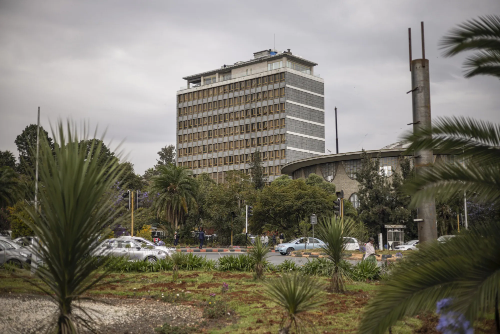Ethiopia Opens Up to Foreign Banks for First Time in 50 Years

TLDR
- Ethiopia’s central bank has officially opened the country’s banking sector to foreign participation, marking a historic shift in policy after five decades of financial protectionism
- The new directive, issued by the National Bank of Ethiopia (NBE) on June 25, enables foreign banks and investors to apply for licences
- The move follows the December 2024 ratification of a new banking law and is part of Ethiopia’s broader economic liberalisation agenda
Ethiopia’s central bank has officially opened the country’s banking sector to foreign participation, marking a historic shift in policy after five decades of financial protectionism. The new directive, issued by the National Bank of Ethiopia (NBE) on June 25, enables foreign banks and investors to apply for licences to operate subsidiaries, open branches, or acquire stakes in local banks.
The move follows the December 2024 ratification of a new banking law and is part of Ethiopia’s broader economic liberalisation agenda. The NBE will now allow up to five foreign bank licences over the next five years. Individual foreign ownership in local banks is capped at 30%, with total foreign ownership limited to 40%.
This is the first time Ethiopia has formally opened its financial system since nationalizing it under the Derg regime in 1974. The country, home to over 128 million people and the largest economy in East Africa by GDP, has long had one of the most closed banking sectors on the continent.
Daba is Africa's leading investment platform for private and public markets. Download here
Key Takeaways
The liberalisation of Ethiopia’s banking sector is a major milestone in the country's reform journey and comes at a critical time. The government is engaged in debt restructuring talks and recently signed a $3.4 billion deal with the IMF. Opening the banking system is expected to attract foreign capital, boost financial inclusion, and modernise a sector still dominated by state-owned institutions. The NBE’s directive creates multiple entry points for international players—subsidiaries, branches, or representative offices—and places the latter under formal supervision for the first time. These changes are likely to attract banks from regional and global financial hubs. Kenya’s KCB Group and South Africa’s Standard Bank have already expressed interest in entering the market. Analysts say the reform could accelerate credit access, technology transfer, and banking innovation, particularly in underserved segments. With mobile penetration high and digital adoption growing, Ethiopia presents an attractive frontier for fintech-enabled banking services.

Next Frontier
Stay up to date on major news and events in African markets. Delivered weekly.
Pulse54
UDeep-dives into what’s old and new in Africa’s investment landscape. Delivered twice monthly.
Events
Sign up to stay informed about our regular webinars, product launches, and exhibitions.




